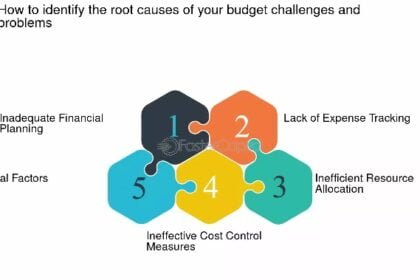Becoming financially secure and then staying that way in the long term is most definitely a goal that many people aspire to, and while it may seem complex to you now, breaking it down into manageable steps can make it more attainable. Simply try a few of these every month and watch how your financial stability develops beautifully over time. Here are some top tips to help you on your journey toward financial security.
Create a Budget
While it may seem obvious to many of you, a budget is the foundation of financial security. Compare it to a shopping list: when you go into your favorite supermarket with a list in hand, don’t you end up spending less than if you went in without a list? The same principle applies to a household budget, which involves tracking your income and expenses to understand where your money is going. Sometimes when we look at credit card statement, it takes a few minutes to even realize what a specific charge is for.
That’s why having a solid and transparent budget helps, because you can more easily see what you may not even need but have been paying for years. Start by listing all your sources of income and then record your monthly expenses. Categorize them into fixed (rent, mortgage, utilities) and variable (entertainment, dining out). Use this information to allocate funds accordingly and identify areas where you could cut back. If you are a digital person, then feel free to download a (free) app for this purpose, but a pen and paper may be even better here.
Save and Invest for Retirement
This is another one of those points that you may have heard a million times. Many people struggle to save because they have the YOLO (You Only Live Once) mentality, which is undeniably exciting and fun. However, you really don’t want to be left with nothing when you hit retirement and don’t have the energy that you used to have at a time when you could work and should have put some money aside. The earlier you start saving for retirement, the more you benefit from compound interest. Contribute to retirement accounts such as a 401(k) or IRA. If your employer offers a 401(k) match, contribute at least enough to get the full match—it’s essentially free money.
Explore different investment options based on your risk tolerance and time horizon. With risk tolerance, this means what suits your personality and whether you can handle not knowing the outcome. Things like Bitcoin and stocks are high risk but come with the possibility of large payouts. If this is your kind of thing, then research well, know the game, and stay updated on price fluctuations and exchange rates like btc to inr, which is of course based on the country you live in. A lower risk investment option is property, be that in your home state or another country all together, perhaps the one you’d like to live in during your retirement years.
Pay Down Debt
Debt can be a significant barrier to financial security, which is why this is one of the most important points in this article. Debt influences all the aspects of your life as it’s hard to get away from and not think about. Receiving reminder letters by mail, having chunks of your income deducted from your account at the start of every month and feeling like you’re running in a rate race are all things that break your spirit and have long-lasting mental and physical consequences. The solution? Pay down your debt as fast as possible.
Focus on paying down high-interest debt first, such as credit card balances. The avalanche method, which involves paying off debts with the highest interest rates first, or the snowball method, which focuses on paying off the smallest debts first, can both be effective. In plain English, make a list of all the institutions you owe money to, from credit card providers to tax authorities, with the interest rate right next to the total owed amount, and start with the highest interest rate. Avoid accumulating new debt by using credit cards responsibly and making sure you can afford to pay off your balance in full each month. Many people don’t quite understand how interest works on loans and debts, and it would be a fantastic idea to sit down and truly comprehend where your money is going.
Live Below Your Means
This point is directly linked to the one above. When you are paying off debt, or even if you don’t have debt, financial security is about spending less than you earn. Avoid lifestyle inflation, which occurs when your spending increases as your income grows. There is no need to impress anyone or purchase items that are out of your price range. Actually, staying within you means and not feeling the need to show off to others can have a beneficial effect on your mental health, which in turn means you can work smarter and better. Focus on saving and investing any additional income. It’s more than okay to be frugal, it really means you understand money and value peace of mind over expensive and unnecessary external goods.
Review and Adjust Regularly
Okay, saving all the time may not be the world’s most exciting thing, but the benefits you’ll see over time will make your life that much more comfortable and enjoyable. Keep in mind that financial security is not a one-time achievement but an ongoing process. It doesn’t mean you’ll never be able to spoil yourself, it just means that you’ll really enjoy that treat when the time does come. Review your budget, savings, investments and financial goals every few months to see your progress and find some wiggle room to get that massage or treatment.
Achieving financial security involves a combination of careful planning, disciplined saving and informed decision-making, all of which go hand in hand. Start small and don’t push yourself too much. Be patient and focus on the beautiful future you’re creating for yourself and your family.






